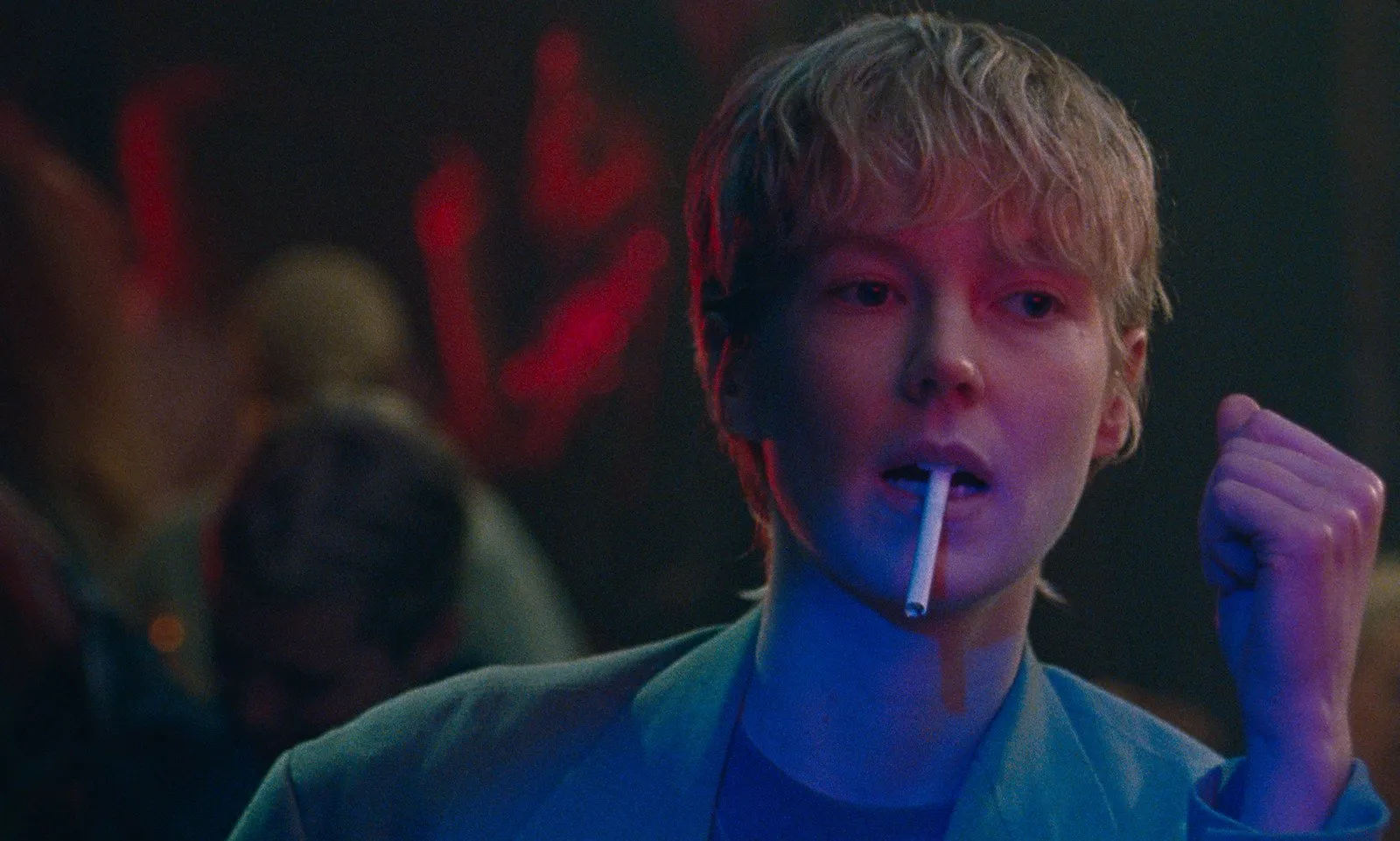
Film Review: Blue Jean
Film Reviews
Blue Jean
Director: Georgia Oakley
BBC Films
Released: 2.10.23
Many LGBTQ+ movies focus on friends and family’s reactions to a protagonist’s coming out journey. Not many films examine the protagonist’s struggle of being closeted and coming out not just to their loved ones, but to themselves and society, learning to accept themselves as a proud LGBTQ+ person. Blue Jean is one of those rare examples of the latter that also focuses on the consequences of such a brave decision.
Jean Newman (Rosy McEwen) lives a relatively normal life. She’s a P.E. teacher at a high school who enjoys going out to bars and clubs with her friends and her girlfriend Viv (Kerrie Hayes). By today’s standards, she’s a normal lesbian woman living her life as best she can—but Jean doesn’t live in the modern world; she lives in 1988 Britain, where then–Prime Minister Margaret Thatcher’s conservative government has just passed laws prohibiting the promotion of homosexuality by local authorities, not dissimilar to today’s “Don’t Say Gay” laws that are sweeping the United States. Jean’s closeted life eventually becomes threatened when a student of hers spots her at a gay bar with her less-than-closeted friends and partner. This sends Jean into a tailspin, eventually leading her to confront her status as a closeted lesbian and question her place within Britain’s anti-gay status quo.
It’s easy to turn a plot like this into a mere dramatic thriller about whether or not Jean will be ousted from her job because of her sexuality, but writer/director Georgia Oakley is more interested in exploring the mentality of a closeted lesbian during this time in England and highlighting how LGBTQ+ individuals were treated. A salient moment comes when Jean and Viv are talking about a hetero-normative dating show on TV and how the government is distracting viewers from the real issues. Jean claims that not everything is political, but Viv simply responds, “Of course it is,” then kisses Jean deeply, which feels like an act of defiance against the conservative government.
Rosy McEwen gives an excellent portrayal of a woman struggling to be her truest self. We’re introduced to her when she’s dying her hair blonde, an innocuous task, only to find out she was once married with longer, darker hair. More than any bigoted policy or social norm, her demure nature prevents her from being content and honest with her friends and family, and McEwen navigates the role with aplomb.
Blue Jean doesn’t limit itself to being a drama about the consequences of being LGBTQ+ but rather focuses on the mental and emotional toll of being closeted and the anxiety one faces for it, both to those who know them and to society at large. –Eric Ray Christensen
Read more LGBTQ+-focused movies:
Film Review: Mutt
Film Review: Bottoms